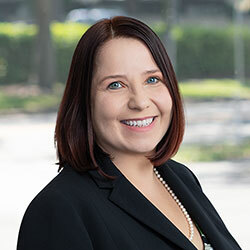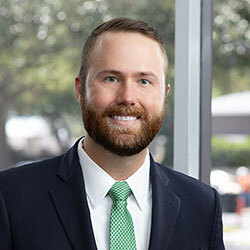A recent ruling by the Supreme Court of Florida in the case of Alberta S. Ellison v. Randy Willoughby, No.SC2021-1580 (November 2, 2023), has significant implications for insurance companies. The court determined that bad faith settlement proceeds from a plaintiff's uninsured motorist insurer should not be considered a "collateral source" under Florida Statute § 768.76. This article summarizes the case and provides practice pointers for the defense bar and insurance carriers in light of this ruling.
Background of the Case
Randy Willoughby suffered serious injuries in a car accident. He brought a claim against Alberta Ellison, as the co-owner of the vehicle involved in the incident.
In addition, Willoughby filed a suit against his own uninsured motorist insurer in an effort to recover benefits under the policy and statutory bad faith damages. Willoughby settled with his insurer before trial for $4 million.
The trial involving Ellison returned a $30 million verdict in favor of Willoughby. Ellison requested the trial court set off the $4 million insurance settlement against the damages award, but the trial court denied her request. The Second District affirmed the trial court’s opinion.
On appeal to the Supreme Court of Florida, the following revised question was certified for review:
“Is a settlement payment made by an uninsured motorist insurer to settle a first-party and bad faith claim a collateral source within the meaning of section 768.76(2)?”
The Supreme Court determined that a settlement payment made by an uninsured motorist insurer to settle a first-party bad faith claim is not a collateral source under section 768.76(2).
Summary of Analysis by Florida Supreme Court
The Supreme Court of Florida first noted that Ellison failed to request a setoff under section 768.041(2) and subsequently addressed the issue of collateral source under section 768.76(2). The Florida Supreme Court determined that a settlement payment made by an uninsured motorist insurer to settle a first-party bad faith claim does not meet the criteria for a collateral source under section 768.76. It emphasized that bad faith damages, being a statutory penalty rather than benefits of the insurance contract, do not fit the definition of "collateral sources" as defined in section 768.76(2)(a)2 of the Florida Statutes.
Ellison argued the insurance settlement qualified as a collateral source payment as it was a payment of “automobile accident insurance that provides health benefits or income disability coverage; and any other similar insurance benefits available to the claimant, whether purchased by him or her, or provided by others” pursuant to section 768.76(2)(a)(2). Ellison also argued that bad faith damages qualify as benefits because they would not be available without an underlying insurance contract.
Section 768.76(1) mandates reducing a damages award for sums that the plaintiff has received from collateral sources. The high court agreed with the lower court's analysis that bad faith damages do not constitute benefits under the statutory definition of collateral source. It reasoned that, “[f]irst-party bad faith claims like Willoughby’s are a creature of statute, not of the underlying insurance contract between the parties.” Relying upon its prior decision in State Farm Mut. Auto. Ins. Co. v. Laforet, 658 So. 2d 55, 61 (Fla. 1995), the Florida Supreme Court characterized statutory bad faith damages as “in substance, a penalty.”
Based on the statute and applicable precedent, the Florida Supreme Court concluded that "bad faith damages are not 'benefits' for purposes of the collateral source definition in section 768.76(2)(a)2." To that end, the Florida Supreme Court rejected Ellison’s contention that the statute should be applied in a way that accomplished its underlying purpose to prevent windfalls to plaintiffs. In so holding, the Florida Supreme Court determined that it would require the court to interpret the statute “beyond its breaking point.”
Therefore, the Florida Supreme Court held that a settlement payment made by an uninsured motorist insurer to settle a first-party bad faith claim is not a collateral source under section 768.76(2).
Moving Forward: Practice Pointers for the Defense Bar and Insurance Carriers
1. Understand the Implications: This ruling highlights the evolving nature of insurance law in Florida. In the aftermath of tort reform, it is crucial for defense attorneys and insurance carriers to stay updated on fresh interpretations of new and existing laws.
2. Strategic Considerations: Defense attorneys should carefully analyze the potential impact of bad faith settlement proceeds on a Claimant's claims. This ruling clarifies that such proceeds cannot be considered a collateral source, which may influence settlement negotiations and trial strategies.
3. Adaptability and Vigilance: As the legal landscape continues to evolve, defense attorneys and insurance carriers must remain vigilant and adaptable. It is important to anticipate potential changes in insurance law and proactively adjust defense strategies and policies accordingly.
The Supreme Court of Florida's ruling in Ellison v. Willoughby has significant implications for insurance companies. The decision clarifies that bad faith settlement proceeds from uninsured motorist insurers should not be considered collateral sources under section 768.76. Defense attorneys and insurance carriers must stay informed, strategically consider the impact of this ruling on their cases, and remain adaptable in the face of evolving insurance law in Florida. By doing so, they can effectively navigate the changing legal landscape and protect the interests of their clients and policyholders.


